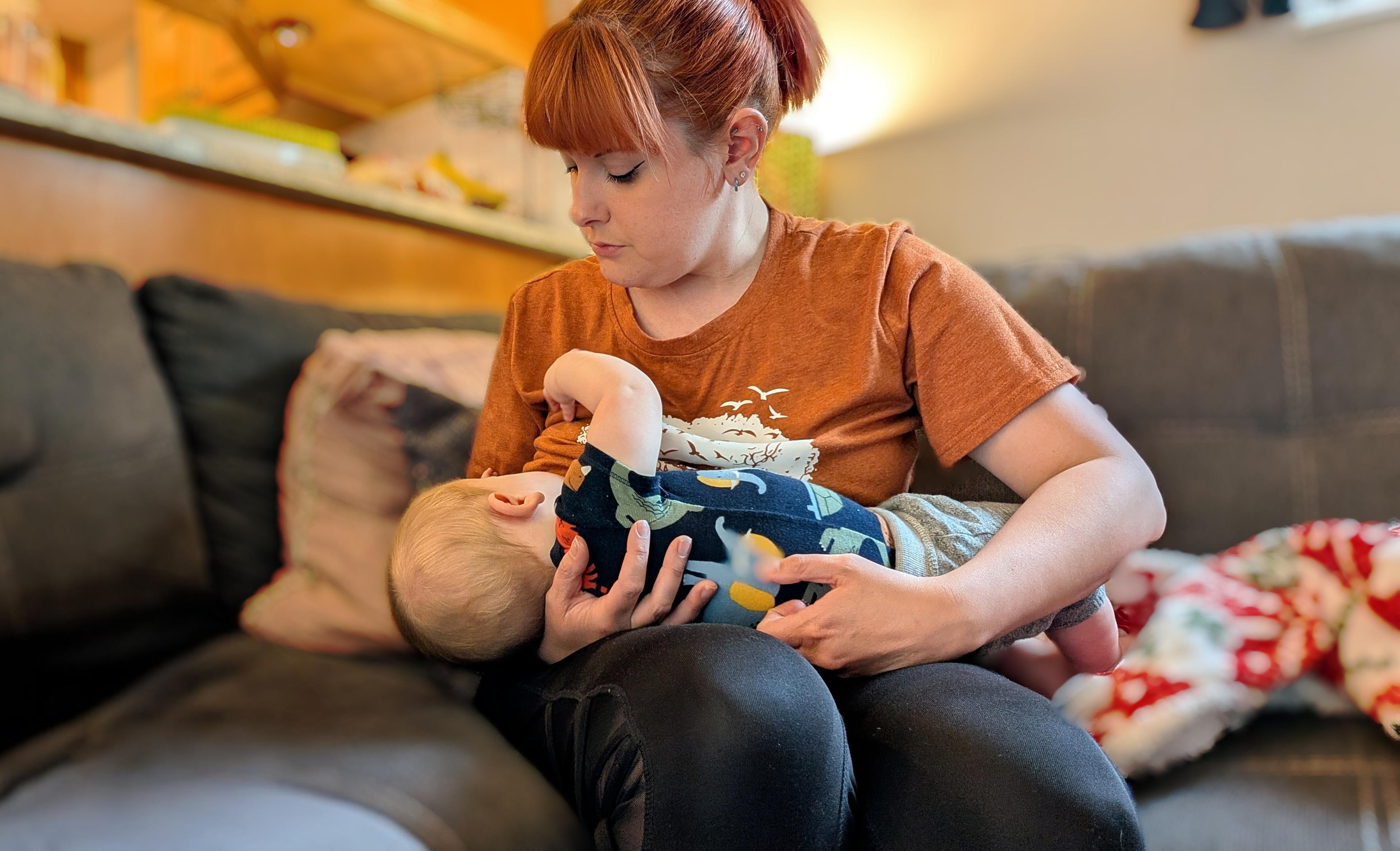Post-weaning Depression: What I Didn’t Know About Quitting Breastfeeding

Monica Drake
| 4 min read

After emerging from the newborn trenches, I was surprised that it wasn’t until now – nine months after giving birth – that I’m struggling with depression.
Difficulty sleeping, randomly crying, nausea, muscle aches, irritability and trouble concentrating – it all hit me like a freight train. I wondered, “Why is this happening to me now?” Then I started getting stomach cramps that resembled contraction sand finally took a closer look at my daily life.
I thought about a recent change I made that could be the cause. This month, I began weaning myself from breastfeeding. My supply had dipped, and I’d often have to feed my baby a bottle of formula immediately after breastfeeding because he didn’t get enough milk from me. The work of it – pumping to maintain my supply and the toll it took on my body – didn’t feel worth the result.
It had never crossed my mind that quitting breastfeeding could cause such a visceral reaction, so when I started experiencing these symptoms, I had no idea what was going on. That’s why I wanted to share my experience because it’s something nobody ever told me.
My experience of post-weaning depression
I learned that post-weaning depression can occur after quitting breastfeeding, leading to feelings of sadness, mood swings, and melancholy due to the significant hormonal shifts in the body. The abrupt decrease in oxytocin, prolactin and estrogen can trigger these depressive symptoms, according to Talkspace, an online platform providing mental health services.
Beyond the hormonal shifts, there's also a significant emotional side to weaning, and I know that quitting earlier than I had wanted can make depression more likely. Part of me feels guilty about not making it to a year, especially after how hard I worked to be able to breastfeed in the first place. I had to exclusively pump for the first couple months.
I’ve also loved breastfeeding my baby and those special moments between the two of us. I need to remind myself that doesn't mean that bond ends. This little human is a part of me, and our bond – which will be built on countless interactions throughout our lives – is only just beginning.
Finding the silver lining
To manage, I’m focusing on the positives. I’m excited to now share the responsibility of feeding my son with my husband, especially the feedings in the middle of the night.
Quitting breastfeeding also feels like reclaiming part of my identity as my own individual. Although the weaning process is making me feel out of whack in the beginning, I know I’ll soon experience the calm after the storm with the return of hormonal balance and the clearing of "baby brain."
The drop in prolactin and the rebalancing of other hormones play a role in this mental clarity. While it might not happen overnight, women report feeling more like their sharper, pre-pregnancy selves in the weeks and months following weaning – regaining energy, improving their mood and sleeping better, according to Talkiatry Online Psychiatry.
Other things I’m looking forward to include:
- Physical comfort: An end to breastfeeding means an end to potential discomfort like sore or cracked nipples, painful engorgement, biting and the risk of mastitis.
- Dietary freedom: I will no longer need to worry as much about how the foods or drinks I consume might affect my baby through breast milk, and I can re-introduce the meds I cut out while pregnant and nursing. I'm excited to be able to take Xanax for my anxiety again, which I cut cold turkey when I found out I was pregnant 18 months ago.
- Wardrobe liberation: I will have the freedom to wear whatever I like – no longer considering accessibility for feeding.
- Reclaiming my schedule: I was living my life in four-hour increments because that's how often I'd have to pump. Once I’ve weaned, I can go for an impromptu dinner, run errands without watching the clock and stop needing breaks in the middle of the workday to pump.
A gradual weaning process can help minimize hormonal fluctuations and reduce the intensity of potential side effects. In the last couple weeks, I’ve gone from pumping or breastfeeding every four hours to every eight.
I also made an appointment with my gynecologist, who prescribed me birth control which can help suppress lactation, and my psychiatrist, who prescribed me breastfeeding-safe anxiety meds to help me sleep as I wean.
Something I’mtrying to tell myself is to forget the saying “Breast is best.” The truth is “Fed is best.”
Image: Courtesy Monica Drake
Related:





